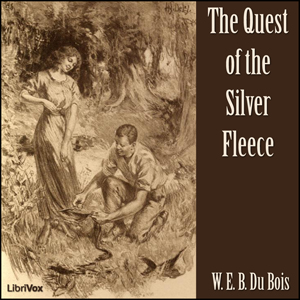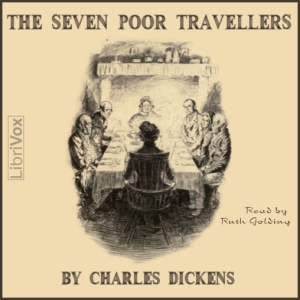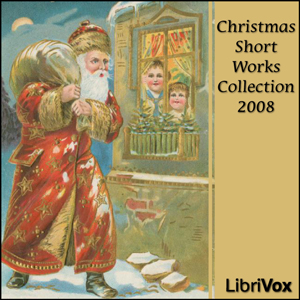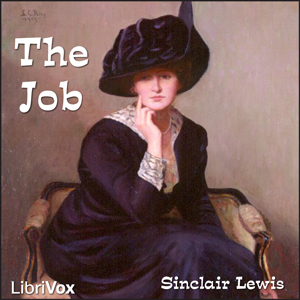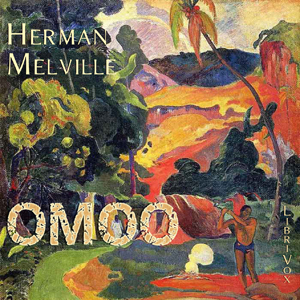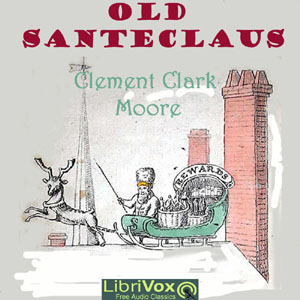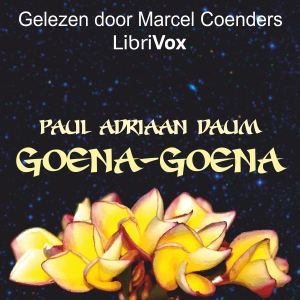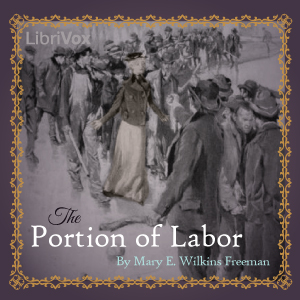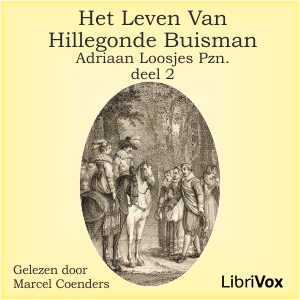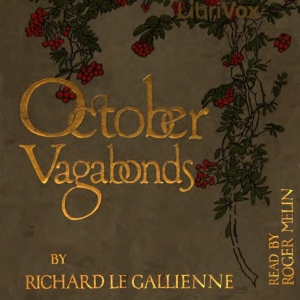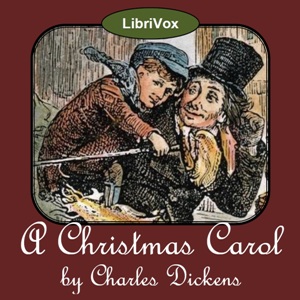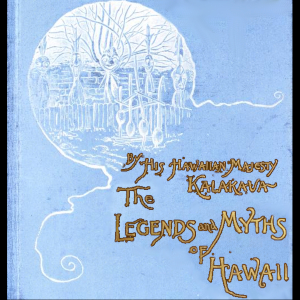The Quest of the Silver Fleece is a story of romance, race, economics and politics set around the 1900s. Here, a traditionally educated boy and an unschooled “swamp girl” each begin a journey toward love, ambition and redemption in the “Old South.” (Summary by AJai Hilton)
38 episodes
One of Dickens' Christmas stories, this was first published as part of the Christmas number of Household Words for 1854. The first chapter relates Dickens' visit to the ancient Richard Watts's Charity at Rochester. The second chapter is the touching story of "Richard Doubledick", which Dickens supposedly told the travellers, and Dickens' journey home on Christmas morning provides the short concluding chapter. (Summary by Ruth Golding)
3 episodes
The multilingual Christmas Short Works Collection 2008, containing public domain short stories, essays, poems, hymns, and scripture passages recorded by a variety of LibriVox members.
33 episodes
LibriVox volunteers bring you 11 recordings of Auld Lang Syne by Robert Burns. This was the weekly poetry project in honor of Gung Haggis Fat Choy, a cultural event originating from Vancouver, Canada, celebrating the timely coincidence of Robert Burns Day with the Chinese New Year. January 25th, 2009 marked the convergence of the 250th anniversary of the birth of Robert Burns and Chinese New Year's Eve. (Summary adapted from Wikipedia.)
11 episodes
'The Job' is an early work by American novelist Sinclair Lewis. It is considered an early declaration of the rights of working women. The focus is on the main character, Una Golden, who desires to establish herself in a legitimate occupation while balancing the eventual need for marriage. The story takes place in the early 1900-1920's and takes Una from a small Pennsylvania town to New York. Forced to work due to family illness, Una shows a talent for the traditional male bastion of commercial real estate and, while valued by her company, she struggles to achieve the same status of her male coworkers. On a parallel track, her quest for traditional romance and love is important but her unique role as a working woman... makes it tough to find an appropriate suitor. (Summary by Wikipedia)
26 episodes
Omoo: A Narrative of Adventures in the South Seas is Herman Melville's sequel to Typee, and, as such, was also autobiographical. After leaving Nuku Hiva, the main character ships aboard a whaling vessel which makes its way to Tahiti, after which there is a mutiny and the majority of the crew are imprisoned on Tahiti. The book follows the actions of the narrator as he explores Tahiti and remarks on their customs and way of life.
Many sources incorrectly assert that Omoo is based on Melville's stay in the Marquesas. The novel is, in fact, exclusively based on his experiences in the Society Islands. (Summary by Wikipedia)
42 episodes

Clearly frustrated at the refusal of his contemporaries to recognise the iniquity of society, Tressell's cast of hypocritical Christians, exploitative capitalists and corrupt councillors provide a backdrop for his main target — the workers who think that a better life is "not for the likes of them". Hence the title of the book; Tressell paints the workers as "philanthropists" who throw themselves into back-breaking work for poverty wages in order to generate profit for their masters.
The hero of the book, Frank Owen, is a socialist who believes that the capitalist system is the real source of the poverty he sees all around him. In vain he tries to convince his fellow workers of his world view, but finds that their education has trained them to distrust their own thoughts and to rely on those of their "betters". Much of the book consists of conversations between Owen and the others, or more often of lectures by Owen in the face of their jeering; this was presumably based on Tressell's own experiences.(Summary by Tadhg)
69 episodes

I Malavoglia è il titolo del romanzo più conosciuto dello scrittore siciliano Giovanni Verga, pubblicato a Milano dall'editore Treves nel 1881. Il romanzo narra la storia di una famiglia di pescatori che vive e lavora ad Aci Trezza, un piccolo paese siciliano nei pressi di Catania. Il romanzo ha un'impostazione corale, e rappresenta personaggi uniti dalla stessa cultura ma divisi dalle loro diverse scelte di vita, soverchiate comunque da un destino ineluttabile. Lo scrittore adotta la tecnica dell'impersonalità, riproducendo alcune caratteristiche del dialetto e adattandosi quanto più possibile al punto di vista dei differenti personaggi, rinunciando così all'abituale mediazione del narratore. L'opera va inserita nel Ciclo dei vinti, insieme a Mastro-don Gesualdo e a La Duchessa de Leyra, opere che affrontano il tema del progresso, visto dal punto di vista degli "sconfitti" di ogni strato sociale. La Duchessa de Leyra rimase solo abbozzato, mentre altri due romanzi previsti nel Ciclo (L'Onorevole Scipioni e L'uomo di lusso) non vennero neppure iniziati. (Riassunto di wikipedia)
16 episodes
Collection of Russian peasant tales:
"The Deserted Mine" - The key to saving the trapped miners is held by a man who hasn't spoken a word in 10 years.
"Mahmoud's Family" - Escaping prisoners of war should be shot, but Mahmoud has a family.
"A Misunderstanding" - A young woman seeks escape from her past, in a convent.
"The Luck of Ivan the Forgetful" - An incorrigible criminal escapes from a sentence of hard labor to find freedom and perhaps a kind of redemption in the forest.
(Summary by Kevin Davidson)
23 episodes
It is the Christmas season once again and things are, well, boring for the adults at Penlyon Castle. "...if somehow or other I had a pack of children belonging to me, I would keep Christmas with the best — keep it as it ought to be kept." says Sir John. His good friend Mr. Danby has the perfect solution - to hire some children to spend Christmas! Thus, the arrival of Lassie, Laddie, and little Moppet - Christmas and Sir John may never be the same again. (Summary by ppcunningham)Proof Listener - hallejk
13 episodes

LibriVox volunteers bring you 13 recordings of The Age of the Motored Things by Ella Wheeler Wilcox.This was the Fortnightly Poetry project for October 6, 2013.Ella Wheeler Wilcox was an American author and poet. Her best-known work was Poems of Passion. Her most enduring work was " Solitude", which contains the lines: "Laugh, and the world laughs with you; Weep, and you weep alone". Her autobiography, The Worlds and I, was published in 1918, a year before her death.A popular poet rather than a literary poet, in her poems she expresses sentiments of cheer and optimism in plainly written, rhyming verse. Her world view is expressed in the title of her poem "Whatever Is—Is Best".None of Wilcox's works were included by F. O. Matthiessen in The Oxford Book of American Verse, but Hazel Felleman chose no fewer than fourteen of her poems for Best Loved Poems of the American People, while Martin Gardner selected "Solitude" and "The Winds of Fate" for Best Remembered Poems. (Summary from Wikipedia)
13 episodes
William – an Englishman is a 1919 novel by Cicely Hamilton. The novel explores the effect of the First World War on a married couple during the rise of Socialism and the Suffragette movement. It was originally published by Skeffington & Son before being reprinted by Persephone Books in 1999. Described as 'a passionate assertion of the futility of war' by The Spectator, William - an Englishman won the first Prix Femina-Vie Heureuse Anglais prize in 1920. - Summary by Wikipedia
18 episodes
Karl Wilhelm Friedrich Schlegel was born in 1772 at Hannover, Holy Roman Empire, to Johann Adolf Schlegel and Johanna Christiane Erdmuthe Hübsch. He attended Jena University and made friends with many of the writers known by his brother August Wilhelm Schlegel. His first book was About the Diotima, written in 1795, and four years later he wrote Lucinda. The translator, Calvin Thomas, called Lucinda a "naughty book", but that was in 1914. I have no idea where it stands now in the world of literature. It was made up of many disconnected parts. - Summary by Craig Campbell
13 episodes
Clement Clarke Moore (July 15, 1779 – July 10, 1863) was an American Professor of Oriental and Greek Literature, as well as Divinity and Biblical Learning, at the General Theological Seminary of the Protestant Episcopal Church. He is the author of the yuletide poem "A Visit from St. Nicholas", which later became famous as "'Twas the Night Before Christmas".
This poem seems to be a 'moral' version of "The NIght Before Christmas".
10 episodes
The short stories of Giovanni Verga, one of the leading authors of Italian verismo, or realism, tell mostly of working-class characters in rural, 19th-century Sicily. One of these stories, "Rustic Chivalry," or "Cavalleria rusticana," was the basis for the opera of the same name by Mascagni. - Summary by Mary J
9 episodes
Mathias de Giraldo est un auteur inconnu et mystérieux jusqu'à ce jour. Probablement un surnom d'un ou de plusieurs auteurs, Mathias de Giraldo publie au XIXe siècle une anthologie regroupant de nombreuses histoires tirées de la culture populaire française. Ces histoires mettent en scène des sorciers, devins, magiciens, astrologues, voyants, revenants, âmes en peine, vampires, spectres, fantômes, apparitions, visions, gnomes, lutins, esprits malins, sorts jetés, exorcismes, etc. L'auteur ouvre des pistes de réflexion quand à la véracité de ces histoires à une époque où la pensée scientifique se fait plus imposante. Plongez dans l'univers de la croyance populaire et savourez les étonnantes histoires de cette anthologie qui ont longtemps été considérées comme une naïve vérité. - Summary by Mosiah
30 episodes
Hagar Stanley, a beautiful young Gypsy, is driven by sexual harassment to leave her tribe and seek refuge with her uncle Jacob, a miserly London pawnbroker. He dies after teaching Hagar the business, and she takes over running the popshop till the legitimate heir can be traced. In the odd assortment of objects that pass across her counter, Hagar uncovers one mystery after another. Some items are linked to actual crimes, others to iniquitous acts of human deceit and betrayal. Whether investigating independently or alongside the police, Hagar combines her native shrewdness with woman's intuition to help untangle the webs of wickedness she encounters, that justice might prevail in the end. Though the individual mysteries in Hagar of the Pawn-shop may be read separately, they are so arranged by Fergus Hume as to form a linked set, with characters from earlier stories popping up again later on, one as Hagar's love interest and another as her nemesis. - Summary by Grant Hurlock
12 episodes
Een literaire thriller uit het Indië van de negentiende eeuw. Moord, doodslag en een aantrekkelijke jonge vrouw die weet wat ze wil. Waarom van dit boek nog geen film is gemaakt, en waarom dit boek zoveel minder beroemd is dan die andere 'Stille Kracht' is mij een raadsel! - Summary by Marcel Coenders
17 episodes
Third in the trilogy of the feminist classics, after Moving the Mountain and Herland. It was published serially in Perkins Gilman's periodical The Forerunner. In Herland, three American young men discover a country inhabited solely by women, who were parthenogenetic (asexual procreation), and had borne only girl children for two thousand years; they marry three of the women. Two of the men and one woman leave the country of Herland to return to America; Jeff Margrave remaining in Herland with his wife, Celis, a willing citizen; Terry O. Nicholson being expelled from Herland for bad conduct; and Ellador electing to leave Herland with her husband, Vandyck Jennings. We now continue the story, told from the viewpoint of Vandyck Jennings, as they return to America. (Summary from the text and by TriciaG)
12 episodes
This is a collection of Fairy and Folk tales. The poet William Butler Yeats collected them from around the Western part of Ireland and translated them near the end of the 1800s. - Summary by Michele Eaton
44 episodes
1870's rural Massachusetts communities became famous as “Oldtown” in Harriet Beecher Stowe's 7th novel and national bestseller. Based partially on her husband Rev. Calvin Stowe's childhood memories and other old timers' recollections, this story of growing up in rural New England just after the American Revolution is one of the earliest examples of local color writing in New England. Young Horace Holyoke, the novel's narrator, describes life during the early Federalist years, capturing its many rich ideas, customs, and family lore. Villagers wrestle with loyalties to the fledgling government, and with the new secular rationalism provoked by the young nation’s Founders. Clashes between Puritanism, Calvinism, and Arminianism abound. This book helped with the depreciation of Calvinism in that time. Summary by Michele Fry
51 episodes

Iolanthe is a fairy banished from fairyland for the crime of marrying a mortal. Her half-fairy, half-human son Strephon is a fairy down to the waist, but his legs are human. He loves Phyllis, but she is courted by the whole House of Lords and the Lord High Chancellor himself! Strephon decides the only way to win his love is to go into Parliament, with the help of his mother and all his fairy aunts. None of them understand politics, but that doesn't matter. He will soon make some changes, starting with throwing the Peerage open to competitive examination! But how will Phyllis react when she catches Strephon with an impossibly young and very beautiful lady who he claims is his fairy mother? This is a spoken "poetic" version of the libretto written by W. S. Gilbert, where a full cast of voices brings the sparkling wit of Gilbert to the fore, and will enhance understanding and appreciation of this comic light opera. (Summary by Beth Thomas)
Narrator/Phyllis: Beth Thomas
Strephon: Shakira Searle
Queen of the Fairies: Jennifer Fournier
The Lord Chancellor: Hamlet
Iolanthe: Kristin Gjerløw
Celia: Lydia
Leila: Vanessa Cooley
Fleta: J. E. Vorble
Earl of Mountararat: Rob Board
Earl of Tolloller: Todd
Private Willis: Alan Mapstone
Chorus Fairies: K. Hand and Roohi Haq
Chorus Peers: John Burlinson and Alan Mapstone
Audio edited by Kristin Gjerløw
2 episodes

"Mary Barton: A Tale of Manchester Life" was Mrs Gaskell's first full-length novel. It was published anonymously in that tumultuous year of political change, 1848 - only a few months after the Communist Manifesto co-authored by her fellow Manchester-resident, Friedrich Engels. Engels's experience as agent in his father's cotton-spinning factory motivated him to write "The Condition of the Working Class in England", a classic account of the sufferings of the poor under the factory-system.
Elizabeth Gaskell's own personal contact with the plight of the poor cotton workers of Lancashire also compelled her to a compassionate examination of their lives; but as a middle-class woman, married to a Unitarian minister, her approach to her subject took on a more emotionally complex significance; influenced by religious faith but also by more personal considerations.
In the brief preface to the novel, Mrs Gaskell hints at her initial impulse. The loss of a beloved child in infancy led her to seek a therapeutic outlet, but one which left her uncertain of her capacity to contextualize her public, writerly response to the tragedies occurring in the surrounding society of Manchester's poorest classes: "I know nothing of Political Economy, or the theories of trade..." She was, however, determined to portray, in novelistic form, the intimate connection between the private experience of her characters and the social forces of her time. The success of the novel led her to proclaim her authorship and move on to further works of fiction, which have secured her in our times a mounting reputation as one of the leading novelists of the mid-Victorian period.
Certainly the novel features numerous death-scenes, all conveyed with a depth of sympathy that contrasts with the queasy iambics with which Dickens orchestrated the notorious demise of Little Nell. Mrs Gaskell was not, like Dickens, a London-based novelist observing the sufferings of the provincial poor with a journalistic detachment - as evidenced in his own admirable, Lancashire-based novel "Hard Times". Gaskell lived among the people whose attenuated lives she chronicled - and however hesitantly, as a début novelist, she rendered their experience in literary terms, her writing presents us with a true insight into the sufferings of individuals at a point in history when the mass of human beings fell casualty to the forms of economic progress following upon the Industrial Revolution. Most impressively she called into question the political and social cost of creating a resentful proletariat despairing of survival in (to quote Karl Marx) a "heartless world".
Our reader Tony Foster is a resident of Manchester and a near-neighbour of Mrs Gaskell (allowing for their separation in time). His superb narration renders the native speech of her characters with an authenticity which ideally conveys the spirit of this book. A truly moving experience awaits everyone who gives ear to this 'Tale of Manchester Life'. (Summary by Martin Geeson)
39 episodes

Emile, or On Education or Émile, or Treatise on Education (French: Émile, ou De l’éducation) was published in 1762 in French and German and in 1763 in English. The significance of Rousseau in education as well as in politics must be found in his revolutionary attitude toward established institutions. Some of his biographers relate the story that when the Academy of Dijon, in 1749, offered a prize for an essay on the question whether the progress of the arts and sciences has tended to the purification of morals and manners, he followed the suggestion of Diderot, who reminded him of the greater notoriety which he could gain by advocating the negative side. The Archbishop of Paris, Christophe de Beaumont (1703-1781), saw in it a dangerous, mischievous work, and gave himself the trouble of writing a long encyclical letter in order to point out the book to the reprobation of the faithful. This was due to the Fourth Book, Confessions of a Savoyard Priest.Rousseau created an imaginary child named Emile and became his tutor. As tutor, he was careful to keep the passions in check while developing the mind. Then he created an imaginary mate for Emile named Sophy.The book was reviewed in The Monthly Review 1763 printed by Ralph Griffiths. "Rousseau says man is born twice, first to exist, then to live; once to a species and again with regard to sex. At the age of puberty commences the second birth, when he is truly born to live, and enters into full possession of the powers of human nature. Tho' nature points out the time when youth emerges from infancy this period may be either accelerated or retarded by education." It was originally translated into English as early as 1768.William H. Payne (1836–1907) translated Emile in 1895. This reading is from Barbara Foxley's 1912 translation from Gutenberg.org. (Summary by Soupy)
50 episodes

"Strange Tales from a Chinese Studio" (or "Strange Tales of Liaozhai") is a collection of nearly five hundred mostly supernatural tales written by Pu Songling during the early Qing Dynasty. It was written in Classical Chinese rather than Vernacular Chinese. Pu is believed to have completed the majority of the tales sometime in 1679, though he could have added entries as late as 1707. He borrows from a folk tradition of oral storytelling to put to paper a series of captivating, colorful stories, where the boundary between reality and the odd or fantastic is blurred. The cast of characters includes vixen spirits, ghosts, scholars, court officials, Taoist exorcists and beasts. Moral purposes are often inverted between humans and the supposedly degenerate ghosts or spirits, resulting in a satirical edge to some of the stories. Ghosts and spirits are often bold and trustworthy, while humans are on the other hand weak, indecisive and easily manipulated, reflecting the author's own disillusionment with his society. (Summary by Wikipedia)
In this project, Librivox volunteers read from Volume 1 of Herbert Giles' English translation of these classic stories.
63 episodes
Richard Wilson has taken tales from the two great Indian epics, the Rāmāyaṇa and the Mahābhārata, as well as other early sources, and has retold them in English, in an effort to showcase to young English-speaking readers that 'oriental' stories share the same elements as tales they are used to. Love, hate, virtue, oppression, tenderness, bravery and resourcefulness and an ultimate desire to conquer evil. - Summary by Paraphrased from the Introduction
33 episodes
This is the story of Ellen Brewster, pretty little daughter of shoe-mill workers in a Northeastern US town of the late 19th century. After the mill shuts down, her family struggles to make ends meet, but as the years pass, Ellen grows up into a prize pupil and pride of the community. The story also covers the birth of the American labor movement and the relationships between rich and poor.
61 episodes

In the town of Titipu, flirting is punishable by death on the command of the Mikado himself! But what happens when the Lord High Executioner is himself condemned to die? And what secret does the wandering minstrel Nanki-Poo hide, that the Mikado and his entire entourage come to witness his execution? "The Mikado" premiered in 1885, when it broke all records for the longest-running musical. It remains arguably the most popular of the Gilbert & Sullivan operettas. Occasionally described as "English ladies with knitting needles in their hair", Gilbert disguised his criticism of British politics by the (ostensibly) Japanese setting. The universal themes of love and death have kept this opera in constant production for over 125 years.The Mikado of Japan: Alan MapstoneNanki-Poo: Tomas PeterKo-Ko, Lord High Executioner: RussellEricPooh-Bah, Lord High Everything Else: Peter YearsleyPish-Tush: ToddHWYum-Yum: AvaillePitti-Sing: Beth ThomasPeep-Bo: Esther ben SimonidesKatisha: TJ BurnsChorus: Adele de Pignerolles, Chuck Williamson, DrPGould, Rachel, Stage Directions read by: Kathrine EnganAudio Edited by: Devorah Allen - Summary by Beth Thomas
2 episodes

Although this book may not have the immediately recognizable title of, say, “Rip Van Winkle” or “Legend of Sleepy Hollow,” this book deserves its place among the pantheon of Washington Irving’s classics. Irving, who traveled extensively in his youth and throughout his life, was given a firsthand look into the lives of two great writers of the Empire: Sir Walter Scott and Lord Byron.
Irving first chronicles his visit to Abbotsford, the home of Sir Walter Scott, whom he notes had not, at the time of his stay, yet received his title of “baronet.” Scott gives Irving a personal tour not only of his home but of the surrounding neighborhoods and landmarks that are a part of Abbotsford. We get a unique glimpse into the private life of the celebrated writer and the reverence the people of his time held him in.
Irving next moves on to Newstead Abbey, the home of the then-late Lord Byron. His travels are guided by Colonel Wildman, the individual who purchased Newstead Abbey following Byron’s death, and who restored the building to its former glory. In this portion of the book we learn of the fantastic and bizarre Byron family and its connection to Robin Hood and the famed locales of Sherwood Forest and Nottingham.
Few American writers gained famed for their extensive work outside of the United States. Washington Irving was unique in many respects, not the least of which was his enthusiastic curiosity of the “homeland” of so many Americans who were born literally around the time America was. His detailed writings of life in the early 19th century and the changes that were already taking over the more rural areas, can’t help but make one yearn for the even simpler times prior to his visit.
(Summary by Greg Giordano)
18 episodes
Een levensbeschrijving van de ideale Hollandse vrouw uit het midden van de 17de eeuw. Deel 2: In dit deel maakt Hillegonda aanstalten om te gaan trouwen met haar kapitein.
19 episodes
From Banjo Paterson, bush poet and favorite son of Australia, here is a collection of colorful stories from Australia that offer a window into the past and the culture of the region. - Summary by A. Gramour
19 episodes
Richard and his friend Colin must sadly return from their distant hermitage to New York City at summer's end. However, rather than take the train on the 430 mile trip to the city, the two decide to walk the route, for as Richard stated: "Don't you hate the idea of being hurled along in a train, and suddenly shot into the city again, like a package through a tube?" Certainly a lengthy walk it would be, but the two decide that the trip itself can be the most rewarding, and their trek begins. Along the way, they meet people they never would have met; they witness landscape, nature and habitat which they wouldn't have otherwise seen; and they learn about themselves and their place in the world which they may not have otherwise comprehended. A clever travelogue of two artistic types from first person point of view. - Summary by Roger Melin
6 episodes
The story concerns the contemplated sale of a famous painting by a proud but relatively cash-strapped British aristocrat to a wealthy American art collector who is bent on buying up treasured masterpieces from the Old World, and the patriotic outcry after the public gets wind of his intent. The matter is further complicated by the strong resistance put up by his younger daughter and her blunt-spoken, art critic friend against the sale. - Summary by shih-ping
20 episodes
A ruthless squire becomes obsessed with a younger woman and conspires against her lover, George Fielding, so that the squire can win her. With the squire's financial pressure turned up on his family, George goes to Australia to earn money enough to marry his girl. In the meantime, a young man named Tom Robinson is sent to prison for stealing. For his somewhat minor offense, he suffers severe mistreatment in prison. "It Is Never Too Late to Mend" was written in the 1850s to shed light on abuses in British prison discipline and the treatment of criminals, but is also an adventure yarn set in the gold fields of Australia. (Summary by TriciaG)
84 episodes
"A Christmas Carol" has been credited with relaunching the celebration of Christmas as we know it. It relaunched Charles Dickens' literary career, that is for sure! More than that, and more importantly, it is an illustration of one "covetous old sinner" and his opportunity for redemption in the eyes of both God and man. For me the book holds a special meaning for it repeatedly shows me that no matter how I often I may make mistakes, mercy and forgiveness are there for the asking. - Summary by Greg Giordano
6 episodes
Internet Archive, which hosts our audio books, is in the midst of their annual fund-raising. They have also begun a drive to provide a mirror site in Canada to ensure IA's availability to all users. The IA is a vast library with millions of public domain books, audio, film, radio, and other media. They also maintain an open library of copyrighted books one can 'check out' by becoming a member with a virtual library card. This collection is devoted to the concept of why we need a public library, the title taken from an essay by Chalmers Hadley, which will be the first entry in this audio book. The rest of the collection is pulled from Project Gutenberg's Library selections. Some are solo essays, most are chapters from selected books on library science and culture. I'm also open to including up to 5 chapters or short works from the list of banned books on PG's site to emphasize the need for a public library. - Summary by Matt Pierard
32 episodes
The Golden Book of Springfield is American poet Vachel Lindsay's strange and mystical odyssey through the Springfield, Illinois of 2018, where the residents of that city strive to turn their home into a democratic utopia. It is a "Springfield a hundred years hence," a dreamlike space of spiritual and social awakenings. But when the threat of international war begins to loom over the horizon, the citizens of Springfield must find new ways to protect their city and keep it a "practical City of God."
This is Vachel Lindsay's only long-form narrative work and a fascinating entry into the utopian fiction subgenre that came about after the publication of Edward Bellamy's Looking Backward. - Summary by Chuck Williamson
19 episodes
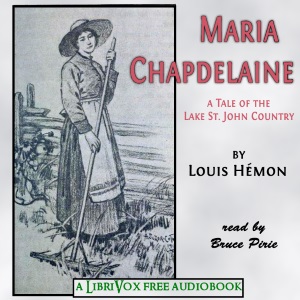
The novel Maria Chapdelaine portrays life in rural Quebec at the beginning of the 20th century. Published first in French in 1913, it is a famous example of the genre known as "novels of the land" ("romans du terroir"). These stories sought to reinforce and preserve the cultural, linguistic, and religious heritage of French Canada — a heritage at risk because of French Canada's historical situation as a conquered enclave inside English North America.
Maria is a young woman whose family works the farm they have cleared from the harsh Quebec forest — "a land that has no pity." As young men seek her hand in marriage, she must clarify her own identity, struggling not only with the problem of selecting from among her suitors, but also with her relationship to the land and to her heritage.
The author Louis Hémon had immigrated from France just two years before writing this novel, and worked on a farm in the Lac Saint-Jean region where the story is set. Hémon died accidentally before seeing his novel in print. (Summary by Bruce Pirie)
16 episodes
In perhaps the most audacious military enterprise in the history of human conquest, Cortez, with only a few hundred men, conquered a civilization of tens of thousands. This is the story of an Englishman who boards a merchant ship destined for the New World, but a shipwreck strands him in Pre-Columbian Mexico, and Roger must find a way to avoid becoming one of the many human sacrifices offered to the Aztec gods.
23 episodes
Washington Irving is, arguably, one of America's greatest writers. He spent many years in Europe and kept records of his observations, which formed the basis of such classics as "Old Christmas," "Bracebridge Hall" and "Tales of a Traveler." This volume is the latest entry in a series of collected essays written during these early years. The fragility of the heart forms the basis of many of these short stories. Irving handles the issues of love, heartbreak and death in a caring and compassionate way. ( Greg Giordano)
6 episodes
Lafcadio Hearn was one of the first Westerners to live in Japan during the early Meiji era, and a prolific writer. Although chiefly known for his collections of Japanese ghost stories (in particular Kwaidan), he also wrote many non-fiction essays about his life in Japan.
This book contains 11 essays covering a variety of topics. For example, Hearn writes about his visits to Kyoto and Osaka, Japanese art, as well as Buddhism and Nirvana. (Summary by Availle)
Prooflisteners for this book were Isana and Margot.
14 episodes
A collection of five stories all of which take place in the Adirondack Mountains of upstate New York, and most which contain elements of some mystery hidden deep within the forests. - Summary by Roger Melin
5 episodes
Carol Milford, a college-educated, progressive, ambitious young woman, is self-sufficient working as a librarian in St. Paul, when she meets a country doctor, Will Kennicott, who convinces her to marry him and move to the rural Minnesota town of Gopher Prairie. She arrives with dreams of beautifying the town, of establishing art and culture, of improving lives and promoting child welfare, but whose spirit is gradually and inexorably crushed by small-town attitudes, ignorance and bigotry. First published in 1920, Main Street is Sinclair Lewis' first major novel, and was a phenomenal success at the time. In 1930 Lewis would be the first American to receive the Nobel Prize for literature. - Summary by Mark Nelson
40 episodes
This poem is part of the "Ecclesiastical Sonnets," writen by Wordsworth between 1821 - 22. - Summary by David Lawrence
14 episodes
Sagen aus Pommern und Rügen, zusammengetragen von Jodocus Deodatus Hubertus Temme. Dabei handelt es sich meist um kurze Abschnitte über Orte, Personen oder Gegebenheiten aus Pommern und Rügen. Darüber hinaus gibt es einige Abschnitte, welche den abergläubischen Meinungen und Gebräuchen gewidmet sind. Im Vorwort wird auf den Zusammenhang zwischen Sagen und Geschichte und das enge Verhältnis zwischen Sage und Aberglaube hingewiesen. - Summary by lorda
50 episodes
This is an historical fiction novel. Many real characters of history are included, as well as fictitious ones. The saga takes place in the period slightly before the American Revolution, and extends for some years after that war. It covers the first movement of southern colonists, over the mountains, into Kentucky, then into the lands that would become Ohio, Indiana, and Illinois. The battles to take these lands from the British make up much of the drama. The characters also move into New Orleans to face off with the French. This was a major best selling novel when released. The writer, Winston Churchill, was a most prominent American novelist of the time. The Prime Minister of England, Winston S. Churchill, was his contemporary, but no family relation. This book contains content that some listeners might find offensive. (Summary by Bob Rollins)
50 episodes
This poem tells the story of a boy in Australia who leaves the farm at harvest time. "and to run from home was a crime."
The story is set in the Riverina, New South Wales in the town of Gundagai. ( David Lawrence)
13 episodes
Geoffrey Chaucer's classic "Canterbury Tales" has here been rendered into clear and contemporary English prose. These classic stories are now available to those who would like to read them without struggling through Middle English poetry. The character and humour of The Wife of Bath and other larger-than-life people created by Chaucer are now accessible to a wider audience, including children. Please note that the original Canterbury Tales includes 24 stories, of which 11 are reproduced here. - Summary by Beth Thomas
13 episodes
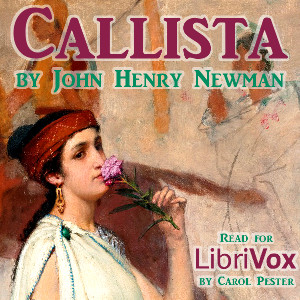
Callista, A Tale of the Third Century, was written by John Henry Newman, who was a scholarly and personable Anglican theologian who became a Catholic priest and cardinal, bringing a good number of Protestant friends along with him into the Roman faith. He wrote Callista as the fruit of a challenge (dare we say “bet”?) with Cardinal Nicholas Wiseman that each man would write a novel about the early church. Wiseman wrote Fabiola and Newman wrote Callista, publishing it in 1855. The title character is a beautiful and talented, but unhappy Greek woman living in pagan Roman North Africa in the third century. She is wooed by a lonely young Christian man, for whom she shows little interest, though she deeply desires to know more about his Christian faith. However, the third century was a dangerous time for Christians, with the onset of persecution under the Emperor Decius. The colorful cast of characters react to the persecution in different ways, but some are put to the ultimate test of whether they will maintain their faith at the price of torture and painful death. Cardinal Newman's writing style is often lively, and occasionally humorous, especially in his conversations. But there is no denying that modern readers may find parts of it quite wordy, particularly in the descriptions of geography (beware Chapter 1!). Most readers are likely to find themselves caring very much about the characters, and cheering for their victories, in addition to learning quite a bit about 3rd century history along the way. (summary by Carol Pelster)
36 episodes
A collection of legends and myths of the Hawaiian islands and their 'strange people' as told by His Majesty King Kalakaua, the last king of Hawaii. Introduction, including a history, geography and social and religious commentary on the islands by R.M. Daggett, United States Minister to the Hawaiian Islands 1882-1885.
32 episodes
